
Queerbaiting is a marketing technique for fiction and entertainment in which creators hint at, but then do not actually depict, same-sex romance or other LGBT representation. There have been several franchises that have been accused of queerbaiting its audience by writing a pairing with romantic or sexual undertones and either not following it through or randomly pairing said characters in a heterosexual romance.
Now this term has been used a lot in recent years, but I’ve disagreed with some shows that have been accused of baiting its fandom because two men are the front runners of the series. Marvel’s The Falcon and the Winter Soldier has recently been called queerbaiting, with some fans expecting a romantic relationship to develop between the titular characters. However, Anthony Mackie (who has played gay leads in projects such as Brother to Brother) has confirmed that despite fan theories, the relationship was purely platonic:
“So many things are twisted and convoluted. There’s so many things that people latch on to with their own devices to make themselves relevant and rational. The idea of two guys being friends and loving each other in 2021 is a problem because of the exploitation of homosexuality. It used to be guys can be friends, we can hang out, and it was cool. You would always meet your friends at the bar, you know. You can’t do that anymore, because something as pure and beautiful as homosexuality has been exploited by people who are trying to rationalise themselves.”

Mackie’s also referred to his character in The Falcon And The Winter Soldier was a “sensitive masculine figure” and he continued his Variety interview with:
“There’s nothing more masculine than being a superhero and flying around and beating people up,” he said. “But there’s nothing more sensitive than having emotional conversations and a kindred spirit friendship with someone that you care about and love.”
While his argument has been met with criticism, I do think masculinity and sensitivity shouldn’t be seen as two separate entities. I think shows that portray platonic love are just as important as romantic love, especially between two men. Often men are told to toughen up or not be emotional and even instinctively feel uncomfortable if they express vulnerabilities or affection because of society's unrealistic expectations on men which often lead to depression if they constantly suppress their feelings. Which is why I am all for platonic love stories being portrayed on screen, but there are clearly shows that intentionally push romantic elements to build hype for a pairing that will never happen.
While I can see how Bucky and Sam are just friends, there are other franchises that are definitely guilty of this. Examples of this in the past are Derek Hale and Stiles Stilinski in Teen Wolf, who had consistent scenes together that many fans interpreted as building towards a romantic storyline which didn’t occur and both characters ended up with totally different characters. However, the show used this ship to gain and ultimately win an MTV award with a promo video of Tyler Hoechlin and Dylan O'Brien snuggling on a cruise ship and even hinting Sterek may be written as canon - yes, that actually happened. The showrunner Jeff Davis revealed later on that Stiles was bisexual, but as it wasn’t written into the show… does that count? Nope. You can’t Dumbledore your way out of that, if your character’s sexuality or attraction to a specific character is never explored in the actual story, then it doesn't matter what the creator reveals when the series has ended.
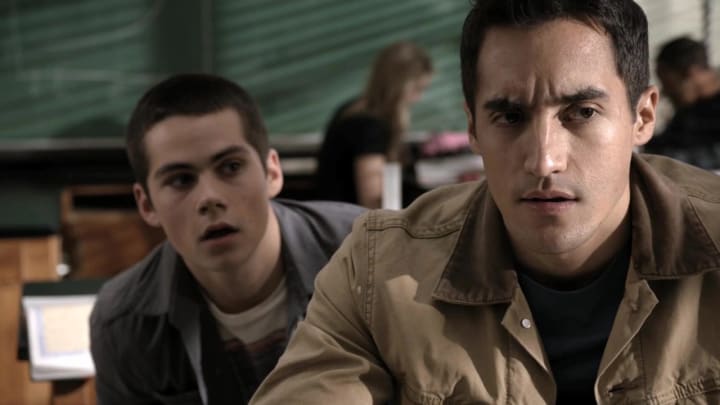
Teen Wolf missed an opportunity to explore more LGBTQ representation - especially when several of the leading actors and showrunner were LGBTQ themselves. Stiles in particular has moments where he questions aloud whether he is attractive or attracted to men, usually with Keahu Kahuanui's Danny Mahealani - one of the few regular gay characters on the show - mainly for comedic purposes. There were many LGBTQ characters that featured regularly throughout the show run, but a gay romantic subplot was only between Charlie Carver’s Ethan and Kahuanui’s Danny during season three which ended by the finale and never revisited as Kahuanui left the show.
The show made moves to rectify the accusations of queerbaiting their werewolf series in the final seasons by bringing back two pivotal characters and including more openly gay and bisexual characters that were involved in the plot. Ethan and Jackson's actors, Charlie Carver and Colton Haynes, both came out as gay to the media during the show’s run and were written back into the show as a romantic pairing in the final season - both had great chemistry and the relationship itself was written well, which is a bit of shame that this storyline was not written in earlier.
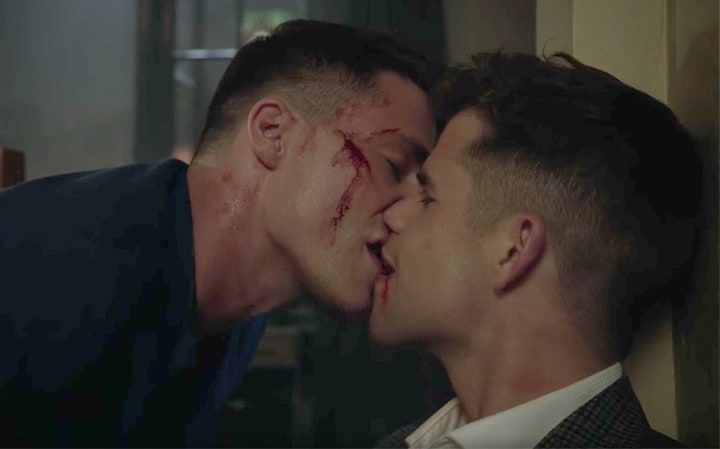
Although before this relationship in season six, Khylin Rhambo made his debut in season four as Mason Hewitt, who as well as being involved in the supernatural drama also had romantic subplots with new characters Brett Talbot and Corey Bryant. These examples show that when it's not ambiguous, teased or hinted at - fans are just as enthusiastic for a same-sex romance that is written well with good performances.
Queerbaiting seems to happen more in supernatural and fantasy dramas, some dragging out the a “will they/won’t they” arc for years. Castiel and Dean Winchester in Supernatural was seen as queerbaiting by fans for years. In the fifteenth season, Castiel confessed his love to Dean only to promptly die (which concluded with the Bury Your Gays trope) - conveniently concluding before Dean can respond, so despite the writers confirming that Castiel loved Dean, it was never clarified whether those feelings were mutual.
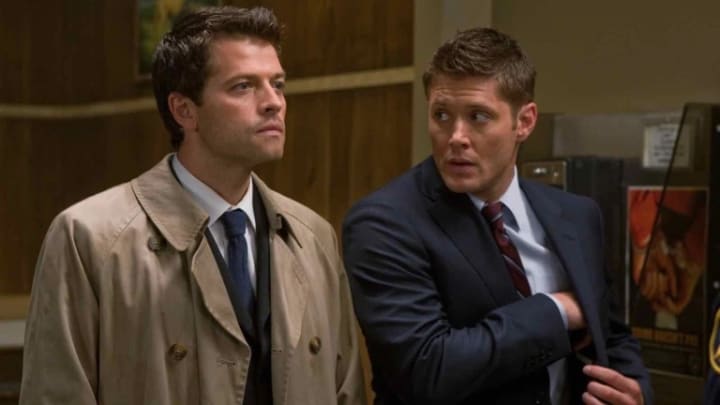
This level of emotional manipulation was seen in the writing of Hope Mikaelson & Josie Saltzman in Legacies. Both Danielle Rose Russell and Kaylee Bryant publicly supported the idea of their characters having a romantic subplot which naturally built hype for the ship, but they stayed in the friend zone.
There are scenes where their romantic feelings are explored, but it’s through fantasy dream sequences or alternative realities. Even in the linear narrative, both Hope and Lizzie confess to each other and others that they had a crush on each other in the past, but that is never delved into - I doubt it will anytime soon since Bryant has recently left the show. This is what I’d call lazy and manipulate writing, especially when the writers are aware of the relationship fans (and even the cast) are rooting for - even teasing it - only to leave any potential up to the audience’s imagination is such a waste.
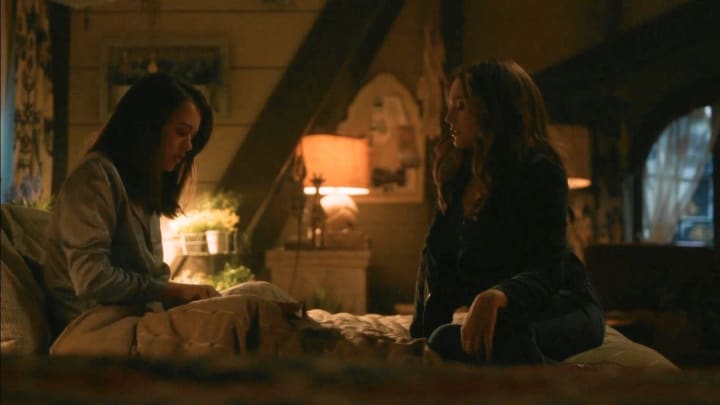
One show that I stopped watching because of the queerbaiting personally was Killing Eve. Initially, the back and forth between Comer and Oh’s characters had the complex tension of Jamie Dornan and Gillian Anderson’s characters in The Fall - that underlying attraction neither want to accept, both drawn to the light and darkness of the other. During the first season, I thought that was written very well until the second season’s finale and I was just fed up with the pairing.
That spark of temptation had started to dwindle and it was getting to a point in season 2 where Eve and Villanelle either needed to give into their feelings entirely or at the very least acknowledge them. The latter almost happened, but then Eve was shot - which kind of unintentionally fulfilled the premise of the show. That was where I decided to give up on the show, the suspense having long since died out for me. The series was criticised for queerbaiting among critics during seasons one and two also, but after the pair kissed in season 3, critics quickly reassessed the show's approach to their relationship. It's good the writers in this case heard the criticisms and made a clear decision what Villanelle and Eve's feelings were.
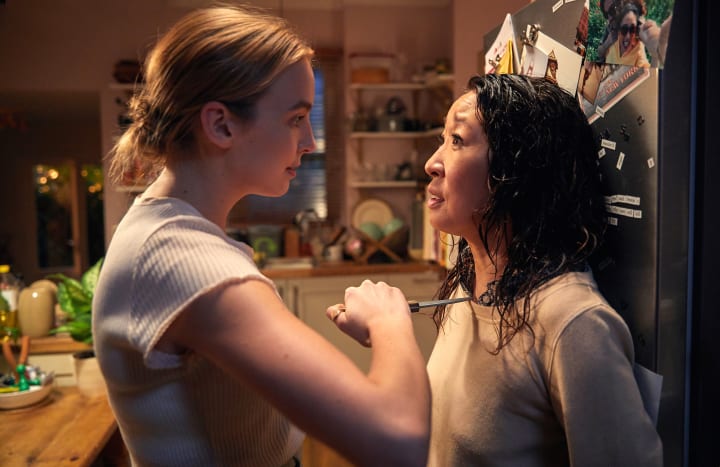
In conclusion, queerbaiting is an incredibly dated and flawed writing technique that writers need to stop using. Because it says more about the writers themselves if their only same-sex attraction is portrayed through hints and ambiguity.
Instead of teasing the possibility, just write your characters as they develop on the page and screen - if two actors have great onscreen chemistry and are even open to exploring a particular pairing, write it in! It’s as simple as that.
Real representation is when a character’s sexuality or identity is the least interesting thing about them, because viewers are way more invested in a well written romance between two developed characters.




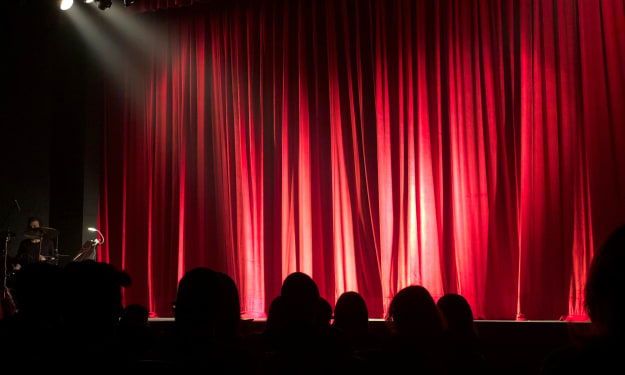

Comments
There are no comments for this story
Be the first to respond and start the conversation.